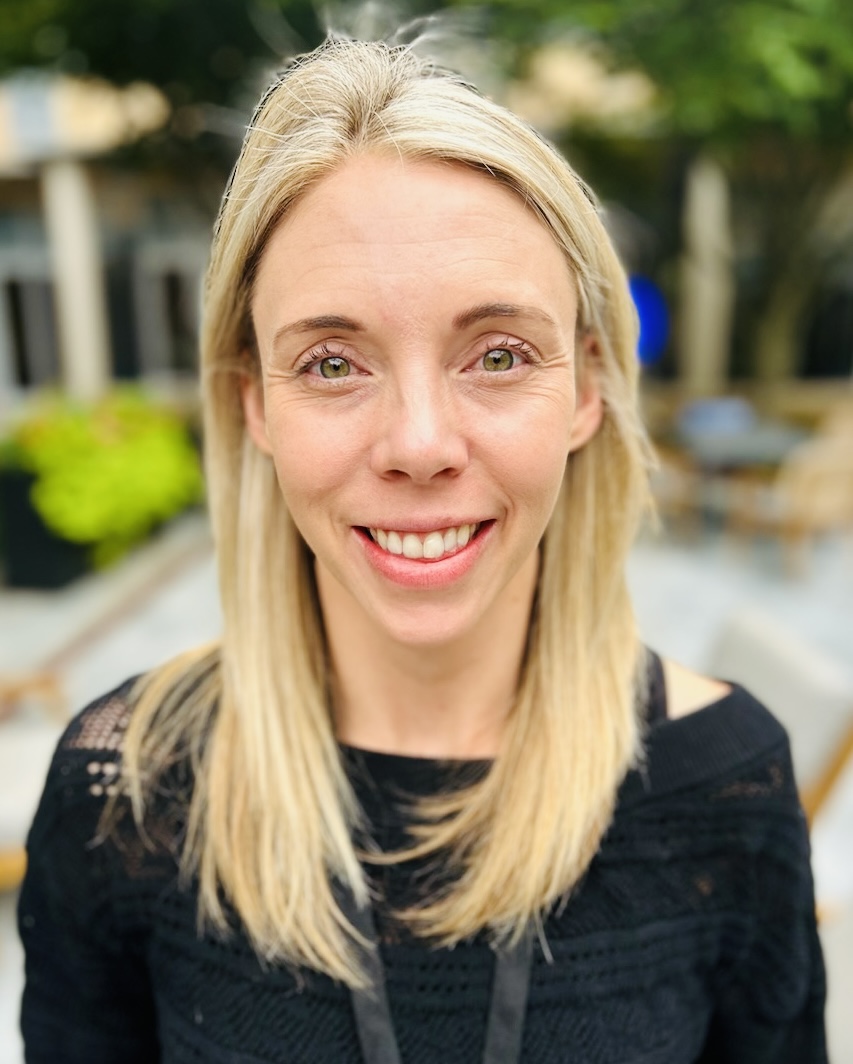Alone in Atlanta? How to make friends and (not) alienate people.
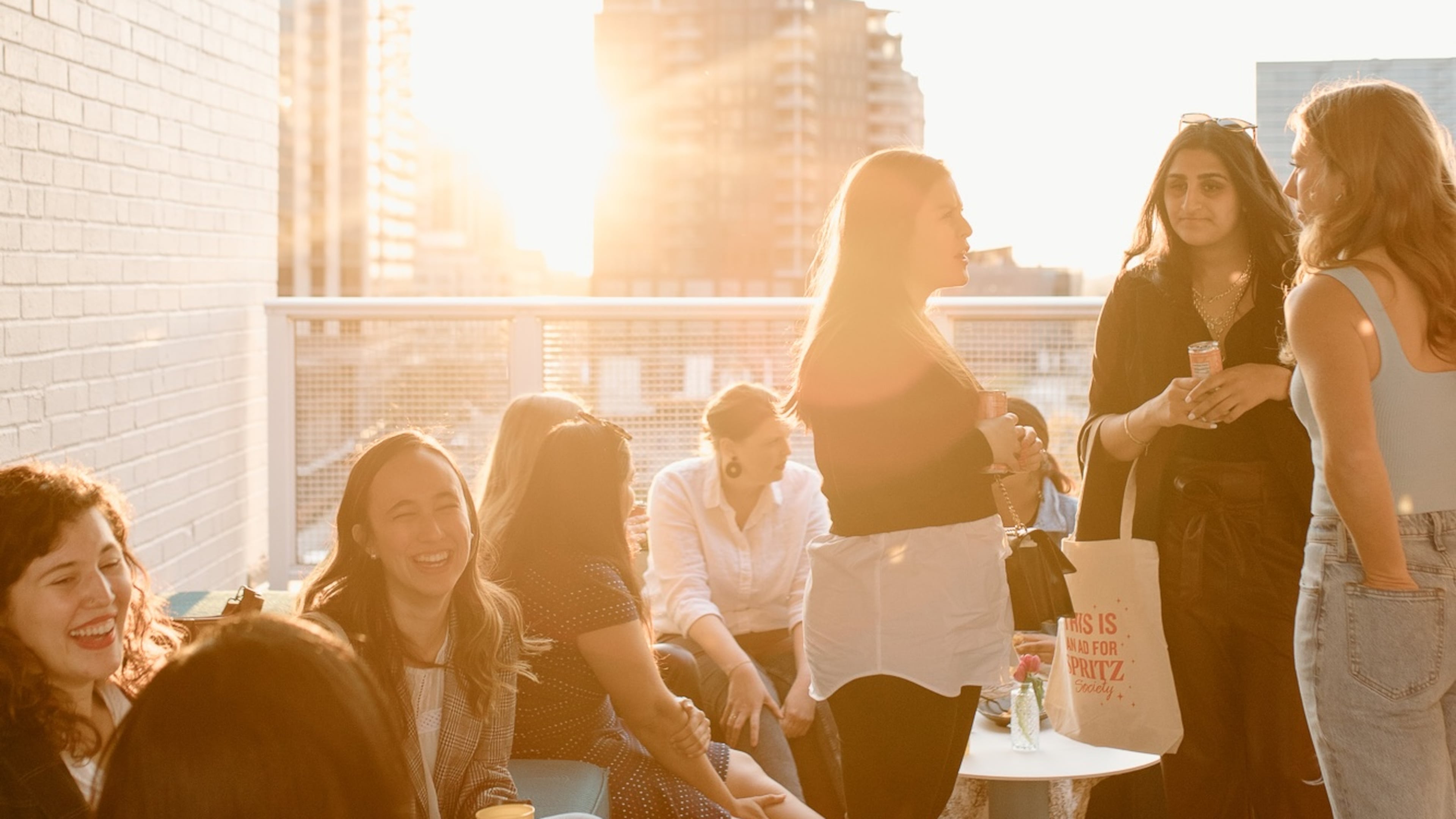
In its 2024 report, the Chamber of Commerce ranked Atlanta the fourth loneliest city in the United States, based on the fact that roughly 45% of its households were occupied by individuals living alone. And in 2023, U.S. Surgeon General Dr. Vivek Murthy issued an advisory declaring loneliness and social isolation a public health epidemic.
According to the advisory, chronic loneliness increases risk of heart disease, stroke, dementia, mental health problems and even premature death. Even before the COVID-19 pandemic, nearly half of U.S. adults reported measurable levels of loneliness — a statistic that has likely worsened in a world shaped by remote work, increased screen time and eroding community ties.
Atlanta psychiatrist Dr. Ross F. Grumet of Atlanta Psychiatric Specialists has treated patients for more than two decades, and he says loneliness is a signal. Like hunger or thirst, he explained, loneliness can be a useful cue, prompting people to reengage with relationships, community or even a deeper connection with themselves.
“Your body and brain are telling you that something needs to change ― that you’re craving connection,” he said.
But meeting new people and making friends isn’t always easy as adults. So, several organizations have sprouted up to help adults in Atlanta make new connections.
WYZR
When the California-based co-founders of WYZR (pronounced “wiser”), Carolyn Kelly and Joy Taylor, first started musing about an app that could connect older adults, they thought they were thinking about it for their fathers who were lonely and in their 80s.
“We thought it would be fun if they got together and shared a ride to Costco,” they said.
But the more they talked, the more they realized their hunger for connection was their own.
Kelly had just moved back to the U.S. after 16 years in Singapore, where she had been living with her husband and three sons. She had gone through a difficult time in her marriage and separated from her husband.
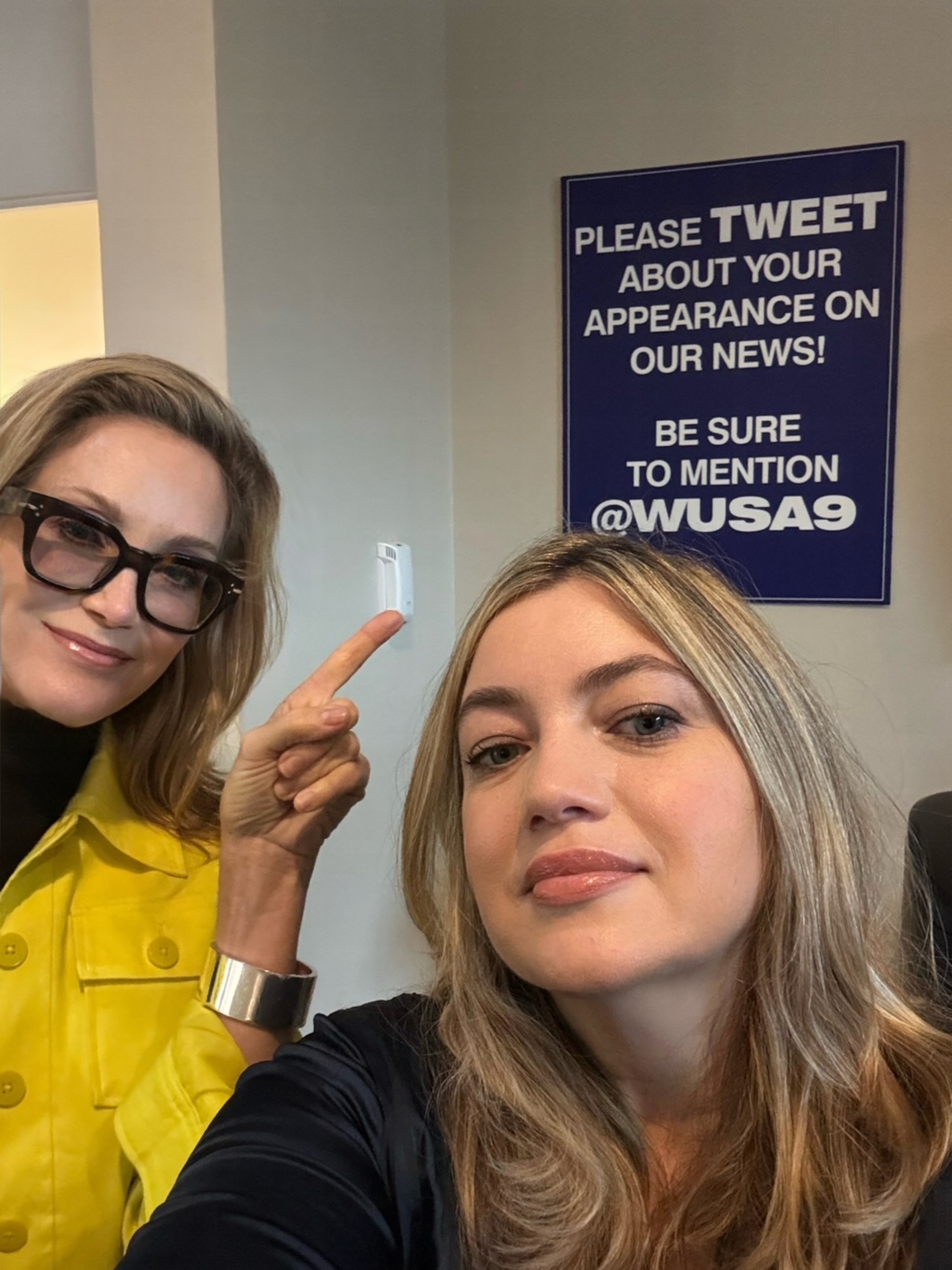
“I moved back and all of a sudden I found myself in a new spot,” Kelly remembers. “I was an empty nester. (My boys) had their own lives. It was just a whole new experience for me.”
Taylor felt a different kind of isolation.
“Since the pandemic, like many people, I was working remotely. And that — while it has its advantages — also has its drawbacks of being disconnected,” she said. “We realized (the app) wasn’t about (our fathers). It was more about people in their 30s, 40s, 50s, 60s — not your kids, not your grandparents — but our age who are feeling really disconnected.”
The more they dug into research, the more Kelly and Taylor realized they were on to something.
“It was an epiphany,” Kelly said. “It was like, there’s nothing out there. So that was the whole impetus of starting the app.”
Neither had a background in tech, so the development process was grassroots with a steep learning curve. They spent roughly three years in beta testing and launched the full scale WYZR app in early 2024.
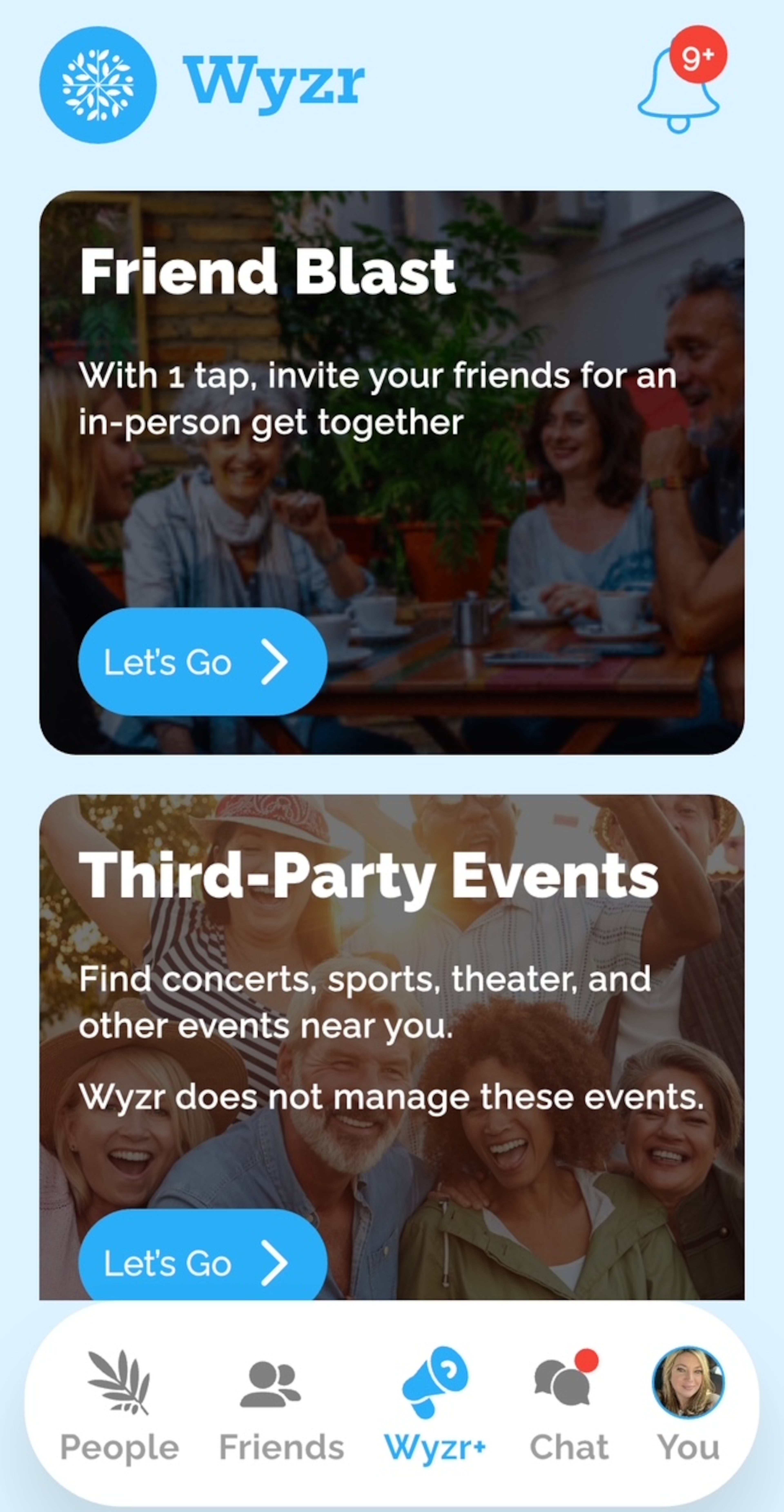
The app is an activity-based friendship app designed for adults 40 and older who are seeking genuine connection — not dating or professional networking, but companionship. Users can browse local events, arrange a car pool, post activity invitations or connect one-on-one over shared interests like hiking, pickleball or live music.
The app also includes a new couples-seeking-friends feature, virtual chat options and ID verification to enhance safety.
Since its launch, WYZR has facilitated more than 300,000 friendship connections nationwide, with Atlanta emerging as one of its most active regions.
“The Atlanta area has really caught on,” Taylor said. “It’s because of the loneliness epidemic in the Atlanta region — people are looking for ways to connect.”
Michael Fenn is a WYZR app user in Atlanta.
“As someone in my 60s who still believes in meeting new friends and having fun, I’ve found WYZR to be a surprisingly easy way to meet great people from across the country,” he said. “It’s not a dating app in the high-pressure sense — it’s more like a digital park bench where you strike up a chat with someone who shares some of your interests. … WYZR isn’t about swiping — it’s about building friendships, and that’s a welcome change of pace.”
In Common
When Alyssa Fagien moved to Atlanta from Florida in 2014, she did not expect to build a business — let alone a community.
“I started an Instagram account called ATL Bucket List, and I really used it as a way to document my adventures throughout Atlanta,” she said. “I had just moved here, so it was kind of a way for me to keep myself accountable and do fun things and share with my friends.”
The account took off. What began as a personal project grew into a thriving platform showcasing Atlanta’s food scene, events and hidden gems. But as her followers grew, one question kept appearing in her inbox: How do you make friends in Atlanta?
“I got that question a lot,” she said. “And I would always try to answer it as truthfully as I could. But because it was such a frequently asked question, I started asking myself, ‘well, what can I do about that?’”
In March 2024, almost a decade after starting ATL Bucket List, she launched In Common, a membership-based social club for Atlantans ages 25 to 40.
“In those first two weeks, with this being a completely new concept, we had over 250 people sign up,” Fagien says.
The group’s first event drew roughly 100 people to Westside Motor Lounge.
“It was honestly such a special evening seeing everyone come together and just creating a space where people are truly open to meeting people,” she said.
The In Common model is built around structured monthly events — one casual happy hour and one smaller, activity-based gathering like a cocktail class, pickleball social or walk on the Beltline.
“We’re trying to do things that are really based on different interests,” Fagien said. “Whether you love food and drink, maybe you’re someone who likes to hike … paint … play Mahjong — we’re going to have a variety of different activity-based events.”
The $144 annual membership fee includes a dedicated online platform to connect with other Atlantans and access to at least 24 member-exclusive events per year.
“I joined In Common to connect with people from all kinds of backgrounds and build genuine friendships,” wrote member Sebasstien Gomez in a public testimonial on Instagram. “I’m most excited to explore new parts of the city and keep meeting amazing people along the way.”
ATL Girl Gang
After graduating college in Jacksonville, Florida, Morgan Sandlin was 22 when she moved to Atlanta in 2015. She tried to make friends, but two years later, she was still looking.
“I don’t want to say I was necessarily lonely … but I felt like I didn’t have that community in Atlanta that I had in college, in high school and all the years up until that point,” Sandlin said.
Though she had her sister nearby, she missed the effortless closeness of her college years. So in the dark morning hours one day in 2017, she launched an Instagram channel and website that would become ATL Girl Gang.
“At first, I thought it was going to be more of a business community,” Sandlin remembers. “But after the first in-person event, we realized people didn’t want to talk about business — they just wanted to meet people who had a similar lifestyle.”
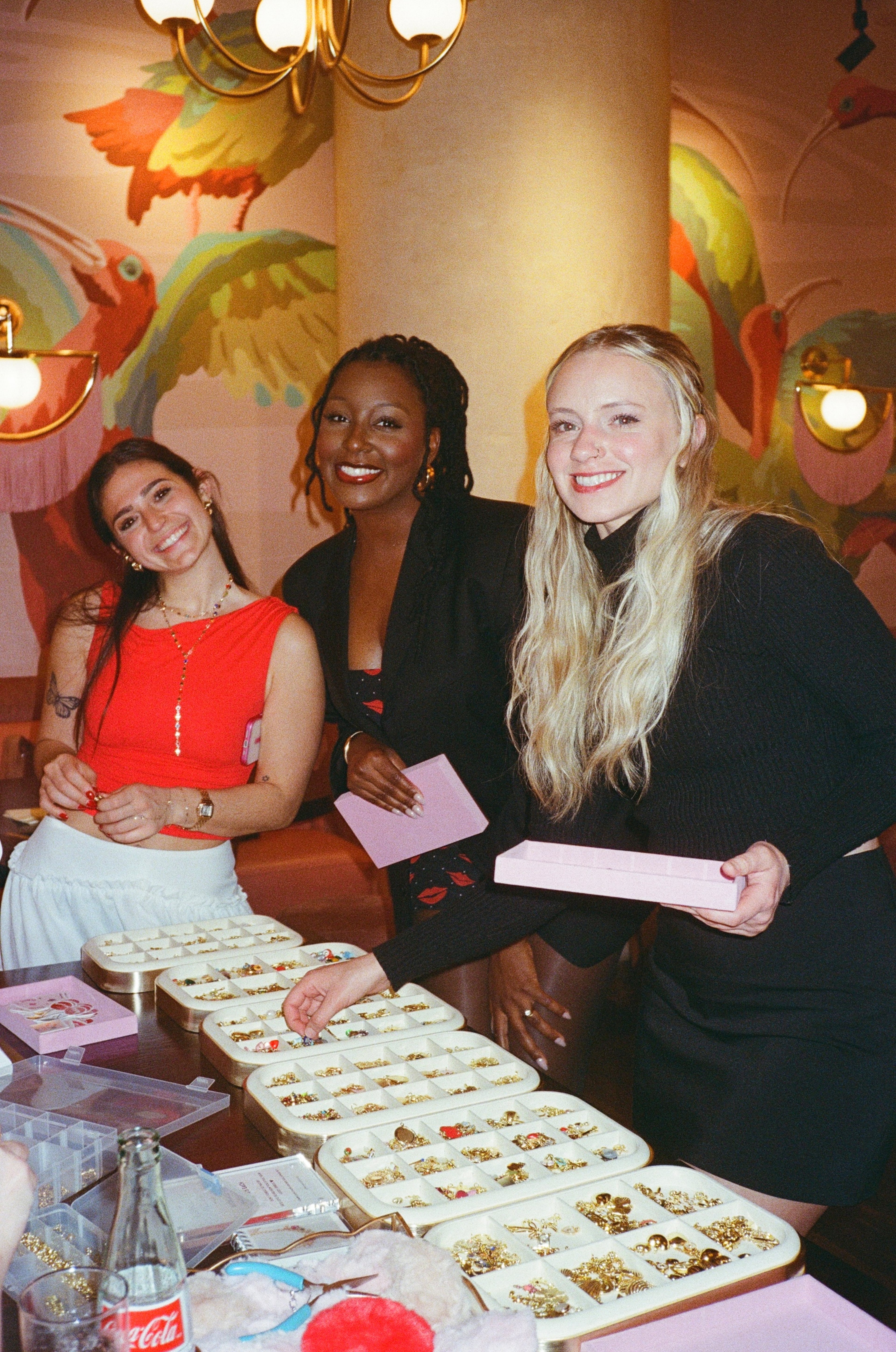
Since its first public gathering at Double Zero in Emory Village, the event-based organization designed to help women in their 20s, 30s and 40s connect has grown steadily. Girl Gang now has hundreds of annual members and hosts monthly events ranging from happy hours to flower-arranging classes. Most are held at local restaurants during weeknights — part of an intentional effort to make them feel approachable and low-pressure.
“It’s literally just, ‘show up,’” said Maddy Haller, who joined Girl Gang as an intern in 2018 and now serves as its community director. “Once you show up, you’ll see that it’s really not scary. You were anxious for no reason.”
While the group originally started with an annual membership fee, Atlanta Girl Gang recently changed its structure. Membership is now free while events cost between roughly $10-$20, based on the event.
The group also maintains a digital chat platform on the Circle app where members can connect after events.
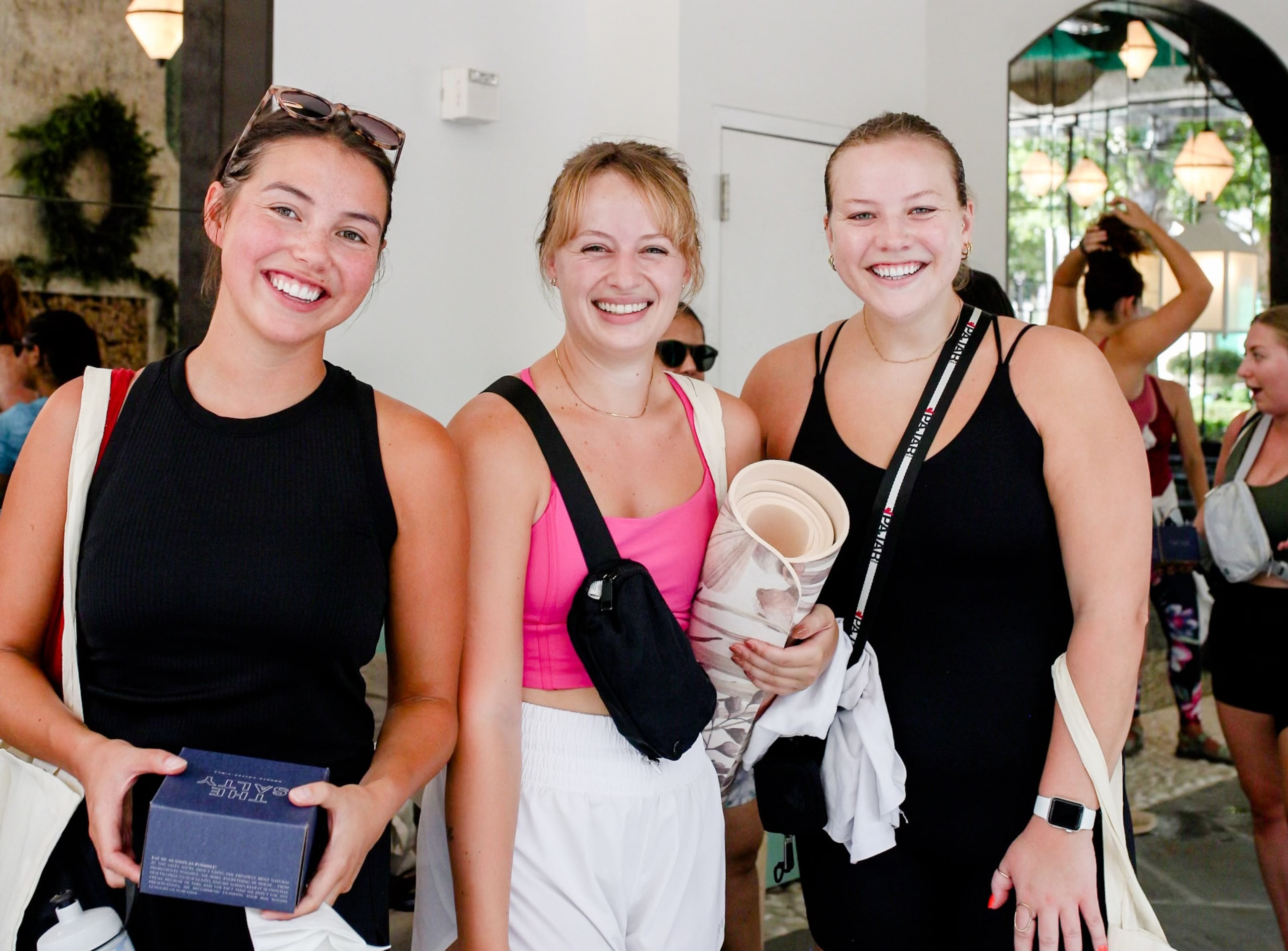
While many women attend events alone, Haller said they rarely stay that way.
“I’ve seen people celebrate birthdays, weddings, babies, big life milestones together,” Haller said. “They met through Girl Gang, and they’re still showing up — and welcoming the next new person in.”
A few more social clubs
There are many other Atlanta organizations geared to help adults make friends. Atlanta Social Club is a private organization that hosts happy hours, fitness events and volunteer outings for women seeking authentic connections. For those drawn to service, Hands On Atlanta coordinates volunteer projects citywide. Southern Fried Queer Pride curates arts-based events for LGBTQ+ communities, while the Atlanta Black Tie Club brings together singles over 45 for monthly cocktail parties and dances.
For adults looking to connect through sports, Atlanta offers a variety of recreational leagues, including JAM Sports Atlanta, GO Kickball, Atlanta Run Club and the Atlanta Lawn Tennis Association.

Local bookstores and book clubs help adults gather socially, including A Cappella Books in Atlanta, All the Tropes (a romance genre bookstore) in Kirkwood, The Lavender Bookshop (queer literature) in Marietta and The Atlanta Book Club.
Maybe it’s not just your social life
While apps and clubs can help open the door to connections, Atlanta psychiatrist Grumet says building meaningful friendships requires practice. And sometimes loneliness isn’t just about connecting to others.
Grumet offered some tips and resources for Atlantans who are lonely.
When feeling lonely, he said it’s a good time to ask self-reflective questions. Sometimes loneliness is a sign that social interaction is needed, but other times it could be a signal that you’re disconnected from your sense of self or your spirituality. Or, it could mean an existing relationship needs work.
Grumet suggests making a list of images that arise while feeling lonely — they might clue you in to what the feeling of loneliness is telling you.
“That’s where you can begin,” he said.
If more social connection is the source of your need, Grumet suggests starting with what you already enjoy.
“If you take the dog for a walk, keep doing that — but maybe walk through a park where you’ll cross paths with others,” he said. “If you’re interested in art, go to a lecture or museum. Use what’s familiar, then push a little further.”
Learn the art of attunement, Grumet says. He recommends the book “Missing Each Other: How to Cultivate Meaningful Connections” by Ashley Pallathra and Edward Brodkin. It outlines four key skills for connection: relaxing, listening, understanding and engaging in back-and-forth interaction.
“These are skills just like public speaking,” he said. “They can be developed.”
And lastly, practice assertiveness. Another of Grumet’s favorite resources is “When I Say No, I Feel Guilty,” by Manuel Smith.
“It teaches how to express yourself clearly and respectfully — whether it’s asking for what you need or navigating difficult conversations,” Grumet said. “That’s essential in both friendships and therapy.”
